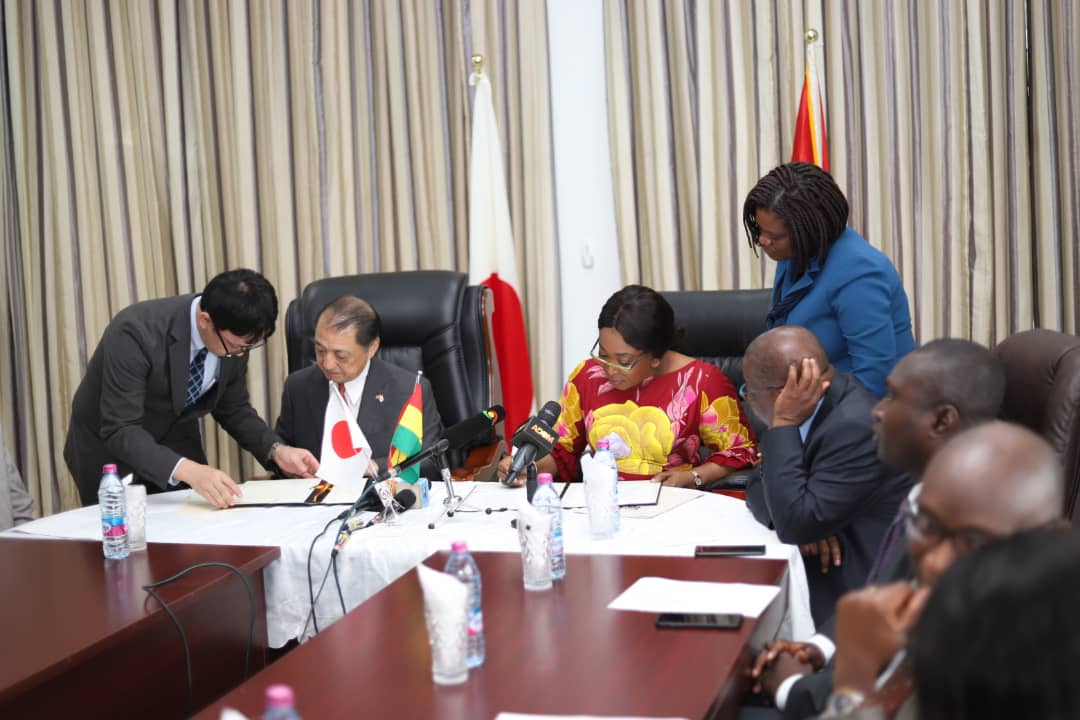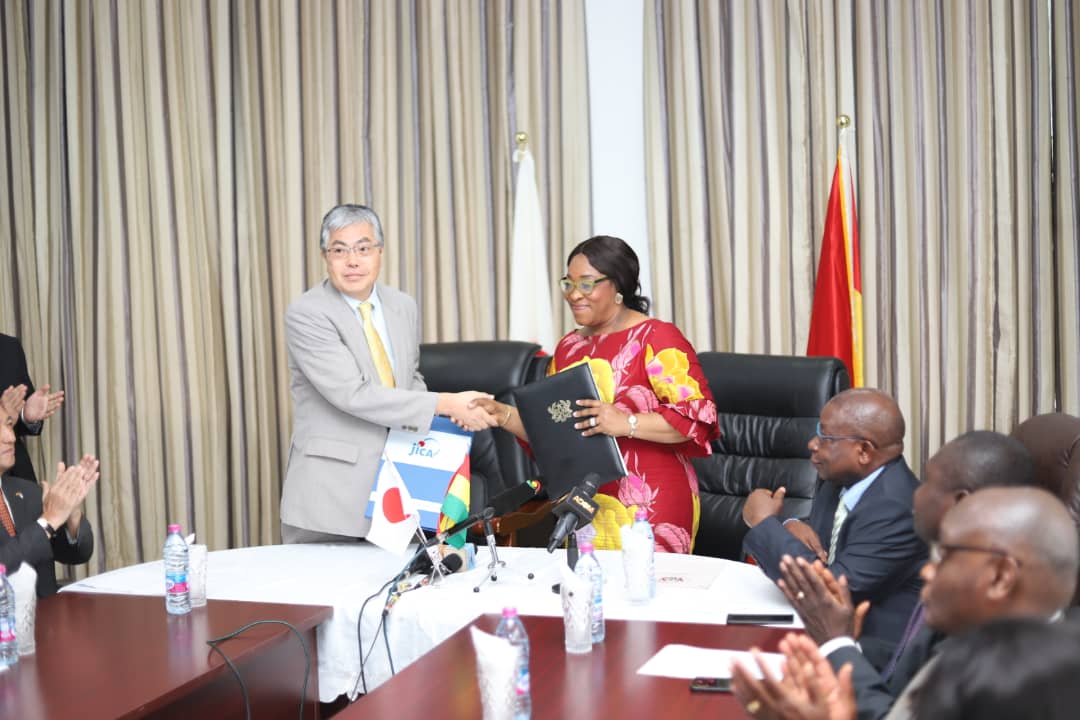Ghana and Japan have signed a $1.7 million grant targeted at supporting the human resource development of highly capable, young government officials who are engaged in formulating and implementing the social and economic development plans of Ghana.
The programme which is known as the Japanese Development Scholarship (JDS) started in 2012 and it is the seventh consecutive year the Asian side is providing the grant to the West Africans.
This year, the programme will provide another 10 young and promising Ghanaian government officials with scholarships to obtain Masters Degrees at Japanese universities such as Kobe University, Nagasaki University, University of Tsukuba and the Hiroshima University.
At a ceremony held at the Ministry of Foreign Affairs and Regional Integration to sign the Exchange of Notes, Record of Discussions and the Grant Agreement, the Japanese Ambassador Extraordinary and Plenipotentiary to Ghana, Tsutomu Himeno, said the focus of study for the beneficiaries will be in the areas of Public Economics, Health, Agriculture and Energy.
“These academic areas were chosen because the Ghanaian and Japanese governments considered them as strategically important areas in terms of strengthening human resources for Ghana’s national development,” Ambassador Himeno said.

“This JDS Programme is implemented in the hope that these bright young participants will acquire knowledge and skills that are useful in tackling social and economic issues that Ghana faces, and take leadership roles in Ghana in the future”, he added.
The Ambassador was hopeful that the selected beneficiaries for the scholarship programme will contribute to the enhancement of bilateral relations between Ghana and Japan through the friends they are likely to make and the experience they acquire during their stay in Japan.
The Minister for Foreign Affairs and Regional Integration, Shirley Ayorkor Botchwey, in her brief remarks about signing the grant on behalf of Ghana acknowledged the enormous contributions of the Government of Japan to Ghana’s socioeconomic development, “as reflected in the various sectors of the economy, notably; education, health, energy, and infrastructural development.”
“So far, about 45 Ghanaians have benefitted from the project since its inception in 2012 and it is my hope therefore that the knowledge and skills they have acquired and are yet to acquire in the various fields of study would put them in better positions to help with the development of the country,” Mrs. Botchwey said.
She expressed her gratitude to the Japanese government for the support.
Source: Ghana/Starrfmonline.com/103.5FM/Wilberforce Asare




